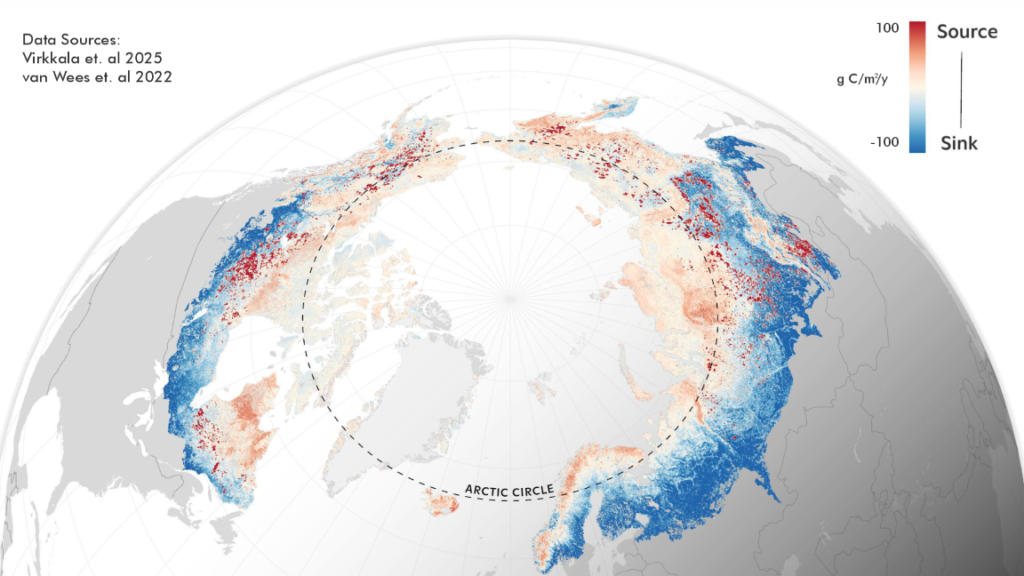Climate change is turning natural carbon sinks into carbon sources, worsening the global warming scenario. Traditionally, forests, soils, and oceans absorbed more CO₂ than they emitted. However, recent studies indicate these systems are becoming net emitters, intensifying the crisis and undermining efforts to limit temperature rise.
In 2023, terrestrial carbon sinks, including forests and soils, saw a sharp decline in CO₂ absorption. Wildfires and prolonged droughts contributed to this, raising concerns about accelerated climate change. The year 2023 was the warmest on record, with a notable rise in atmospheric CO₂ despite only a slight increase in fossil fuel emissions, suggesting a diminished capacity of natural carbon sinks. Rising ocean temperatures have also reduced their ability to absorb CO₂, worsening the problem.
The Arctic tundra, once a critical carbon sink, is now emitting more greenhouse gases due to permafrost thawing. This activates microbes that decompose organic matter, releasing CO₂ and methane, creating a feedback loop that accelerates warming. The shift in Arctic carbon dynamics contributes to rising sea levels and extreme weather.
Wildfires further deplete the carbon budget. A study found wildfires are pushing the planet closer to critical warming thresholds, affecting tree cover and carbon storage. Their increasing frequency and intensity reduce forests’ ability to recover, weakening their role as carbon sinks.
However, challenges persist in regulating Earth’s climate. Deforestation, land degradation, and climate-induced stressors threaten forests and soils. To address this globally, the United Nation’s REDD+ Program, and Trillion Trees Initiative led by the WEF among others aim to protect and restore forests.
In India, the government recognizes the need to enhance carbon sinks. The National Action Plan on Climate Change, launched in 2008, includes the Green India Mission to increase forest and tree cover. The MoEFCC has introduced initiatives supporting afforestation, reforestation, and sustainable land use policies. Achieving this requires afforestation programs, sustainable land management, and community participation. Expanding urban greenery and restoring degraded lands could further boost India’s efforts.
Urgent global action is needed to prevent carbon sinks from turning into long-term carbon sources, further exacerbating climate change. Strengthening policies and actions to protect and enhance carbon sinks is vital to mitigating climate change and ensuring ecological sustainability.

